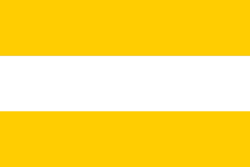Education in Tengaria
 | |
| Ministry of Education | |
|---|---|
| Minister of Education | Zhelyazko Aleksandarev |
| National education budget | |
| Budget | €XXXX billion €XXXX per student |
| General details | |
| System type | National |
Education PLACEHOLDER PLACEHOLDER PLACEHOLDER PLACEHOLDER PLACEHOLDER PLACEHOLDER PLACEHOLDER PLACEHOLDER PLACEHOLDER PLACEHOLDER PLACEHOLDER PLACEHOLDER PLACEHOLDER PLACEHOLDER PLACEHOLDER PLACEHOLDER PLACEHOLDER PLACEHOLDER PLACEHOLDER PLACEHOLDER PLACEHOLDER PLACEHOLDER PLACEHOLDER PLACEHOLDER PLACEHOLDER PLACEHOLDER PLACEHOLDER PLACEHOLDER PLACEHOLDER PLACEHOLDER PLACEHOLDER PLACEHOLDER PLACEHOLDER PLACEHOLDER PLACEHOLDER PLACEHOLDER PLACEHOLDER PLACEHOLDER PLACEHOLDER PLACEHOLDER PLACEHOLDER PLACEHOLDER PLACEHOLDER PLACEHOLDER PLACEHOLDER PLACEHOLDER PLACEHOLDER PLACEHOLDER PLACEHOLDER PLACEHOLDER PLACEHOLDER PLACEHOLDER PLACEHOLDER PLACEHOLDER PLACEHOLDER PLACEHOLDER PLACEHOLDER PLACEHOLDER PLACEHOLDER PLACEHOLDER PLACEHOLDER PLACEHOLDER PLACEHOLDER PLACEHOLDER PLACEHOLDER PLACEHOLDER PLACEHOLDER PLACEHOLDER PLACEHOLDER PLACEHOLDER PLACEHOLDER PLACEHOLDER PLACEHOLDER PLACEHOLDER PLACEHOLDER PLACEHOLDER PLACEHOLDER PLACEHOLDER PLACEHOLDER PLACEHOLDER PLACEHOLDER PLACEHOLDER PLACEHOLDER PLACEHOLDER PLACEHOLDER PLACEHOLDER PLACEHOLDER PLACEHOLDER PLACEHOLDER PLACEHOLDER PLACEHOLDER PLACEHOLDER PLACEHOLDER PLACEHOLDER PLACEHOLDER PLACEHOLDER PLACEHOLDER PLACEHOLDER PLACEHOLDER PLACEHOLDER PLACEHOLDER PLACEHOLDER PLACEHOLDER PLACEHOLDER PLACEHOLDER PLACEHOLDER PLACEHOLDER PLACEHOLDER PLACEHOLDER PLACEHOLDER PLACEHOLDER PLACEHOLDER PLACEHOLDER PLACEHOLDER PLACEHOLDER PLACEHOLDER PLACEHOLDER PLACEHOLDER PLACEHOLDER PLACEHOLDER PLACEHOLDER PLACEHOLDER PLACEHOLDER PLACEHOLDER PLACEHOLDER PLACEHOLDER PLACEHOLDER PLACEHOLDER PLACEHOLDER PLACEHOLDER PLACEHOLDER PLACEHOLDER PLACEHOLDER PLACEHOLDER PLACEHOLDER PLACEHOLDER PLACEHOLDER PLACEHOLDER PLACEHOLDER PLACEHOLDER PLACEHOLDER PLACEHOLDER PLACEHOLDER PLACEHOLDER PLACEHOLDER PLACEHOLDER PLACEHOLDER PLACEHOLDER PLACEHOLDER PLACEHOLDER PLACEHOLDER PLACEHOLDER PLACEHOLDER PLACEHOLDER PLACEHOLDER PLACEHOLDER PLACEHOLDER PLACEHOLDER PLACEHOLDER
History
Education in Tengaria is a time honored tradition, dating back to the ancient Piraean city state of Istros on the Southern Coast in the third century BC. Xenagenes, disiciple of the great philosopher Xenagoras, founded a school in the city, known as the Agora. The Teleological School flourished in the city, although it became secondary to the other philosophers when the Empire of Arciluco came to dominate the region in the sixth century. Over the centuries, the Tengars came to adopt the Liberal arts education of the Solarians and Piraeans, passed on by the Amathians. In addition, the local churches established by the Sotrian missionaries provided another source of learning. The process of education was slow and gradual, as the Tengars were a rural and pastoral people, and most of the learning began to be focused in the towns and around churches. However, by the time of the Grand Principality of Tengaria, Tengaria had become more of its own state, the schools became more prominent and widespread. By the rise of the Empire of Arciluco, Tengaria had a well developed educational system and a strong philosophical and theological community. Emperor St. Vasil the Great took the educational system and reformed it, marking the beginning of the Tengarian Golden Age. He established the University of Lenovo in 1405, the oldest university in Western Euclea. The Agora school became popular once again. Tengaria for several centuries became the centre of learning in Western Euclea, and was well known for its intellectual community. The University, the Agora and soon several other insitutions became places for discussion and learning.
Eventually, Tengaria's Golden Age came to an end. The political dominance of Soravia of the region caused the educational community to fracture and to slowly decay. Although initially opposed, modern thought from Eastern Euclea began to make its way into Tengaria. Eventually those who believed in them came to positions of power, and the classics began to be put aside for the sake of the newer material. In addition, Soravian republican thought began to become prominent in the academic sphere in the late 19th century. Modern Soravian literature and Eastern Euclean scientific advancements and thought became mainstream amoung the intellectual community. Whereas before Tengaria's educational system had remained unique, it became more and more like that of other countries, with academic circles beginning to try to imitate the rest of Euclea. The old Agora school fell into neglect once again. Tengaria's education began to fall behind even its Euclean rivals. The Znaniya School was formed in part as a reaction to the state of Tengarian Education, as they sought to restore Tengaria's schools to their old heritage and strength, especially by turning back to the intellectual history and to Teleology as the means to properly educate the young. However, the academic community worked against the new school, despite its popularity, and so the schools did not have a chance to reform between the Great War.

During the Great War, higher education was suspended with the Amathian invasion and occupation. After the war, with the formation of the Republic, it was dominated by the Soravian inspired republican university staff. With the university staff now largely entering into politics, the followers of the Znaniya School began to slowly enter into the education system. However, the poorly mananged republic floundered, and the state of education was considered rather weak, as the country as a whole suffered political turmoil and economic collapse. After the Tengarian Civil War, Simeon Kovachev took power. A disciple of the Znaniya School, he viewed education as his top priority for Tengaria, as the education of the youth is vital in producing a virtuous society. He immediately worked to reform the system, dismissing unwanted teachers from positions of power, restructuring the entire Tengarian educational system, implementing a socratic liberal arts education focused on the Great Books, changing the division of the arts and sciences to a more classical system and putting heavy government oversight and funding into education. Kovachev’s system is still in use today, despite criticism from outside countries.
